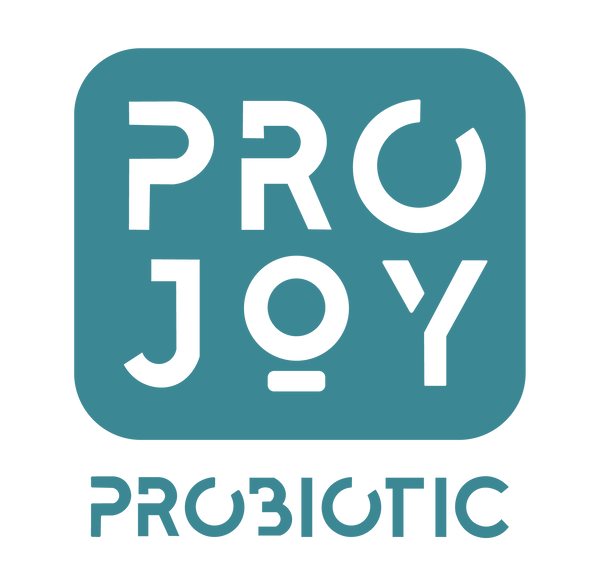
Managing Irritable Bowel Syndrome (IBS): The Power of Probiotics, Prebiotics, and Synbiotics
Share
Introduction
Irritable bowel syndrome (IBS) is a chronic gastrointestinal disorder that affects millions of people worldwide. It is characterized by symptoms such as abdominal pain, bloating, constipation, and diarrhea. While the exact cause of IBS is not known, it is believed to be caused by a combination of factors, including genetics, diet, stress, and dysbiosis in the gut microbiome. Probiotics, prebiotics, and synbiotics are emerging as potential therapeutic options for IBS. This blog post will explore the implications and beneficial effects of these gut-friendly supplements in managing IBS.
What are Probiotics?
Probiotics are live microorganisms that, when consumed in adequate amounts, confer health benefits to the host. They can be found in foods such as yogurt, kefir, and sauerkraut, or in supplement form. Probiotics are known to promote gut health by restoring the balance of the gut microbiome. They do this by inhibiting the growth of harmful bacteria and promoting the growth of beneficial ones.
Probiotics have been found to be effective in managing IBS symptoms. A study published in the Journal of Clinical Gastroenterology found that the probiotic strains are effective in reducing IBS symptoms such as bloating, abdominal pain, and bowel movement difficulty. Another study published in the American Journal of Gastroenterology found that a combination of probiotics was effective in reducing symptoms such as bloating, flatulence, and diarrhea.
What are Prebiotics?
Prebiotics are non-digestible food components that promote the growth and activity of beneficial gut bacteria. They are found in foods such as bananas, onions, garlic, and whole grains. Prebiotics are not digested in the small intestine, but rather fermented in the large intestine by gut bacteria.
Prebiotics have been found to be effective in managing IBS symptoms. A study published in the British Journal of Nutrition found that prebiotics were effective in reducing IBS symptoms such as abdominal pain, bloating, and flatulence. Another study published in the Journal of Gastroenterology and Hepatology found that a prebiotic supplement containing fructo-oligosaccharides (FOS) was effective in reducing IBS symptoms such as abdominal pain and bloating.
What are Synbiotics?
Synbiotics are a combination of probiotics and prebiotics like Projoy Probiotics. They are designed to improve the survival and activity of probiotics in the gut by providing them with a food source. Synbiotics have been found to be more effective than either probiotics or prebiotics alone in managing IBS symptoms.
A study published in the journal Gut Microbes found that a synbiotic containing the probiotic strain Lactobacillus acidophilus and the prebiotic FOS was effective in reducing IBS symptoms such as abdominal pain and bloating. Another study published in the Journal of Clinical Gastroenterology found that a synbiotic containing the probiotic strain and the prebiotic was effective in reducing IBS symptoms such as abdominal pain, bloating, and bowel movement difficulty.
Conclusion
Probiotics, prebiotics, and synbiotics are emerging as potential therapeutic options for managing IBS. They work by restoring the balance of the gut microbiome and promoting the growth of beneficial gut bacteria. Probiotics have been found to be effective in reducing IBS symptoms such as bloating, abdominal pain, and bowel movement difficulty. Prebiotics have been found to be effective in reducing IBS symptoms such as abdominal pain, bloating, and flatulence. Synbiotics

4 comments
Dear Dr. Ashok Goyal,
Thank you for your valuable suggestion. We genuinely appreciate your feedback and will strive to enhance the depth and clarity of the information we provide on these subjects. In our ongoing efforts to deliver comprehensive knowledge, we are actively seeking collaborations with esteemed medical professionals, nutritionists, and dieticians. If you are interested in joining forces with us, please do not hesitate to let us know. We would be thrilled to have you on board.
Dear Kanaka Chary, we sincerely appreciate your kind words. At our end, we are consistently updating our knowledge regarding the invaluable role of probiotics in promoting a healthy and joyful existence. We look forward to hearing more from you and learning about your perspectives in the future as well.
It’s good information about the IBS but need more up dates .
i have been updating my biological knowledge by going through your resorceful texts a lot✓. thank you.